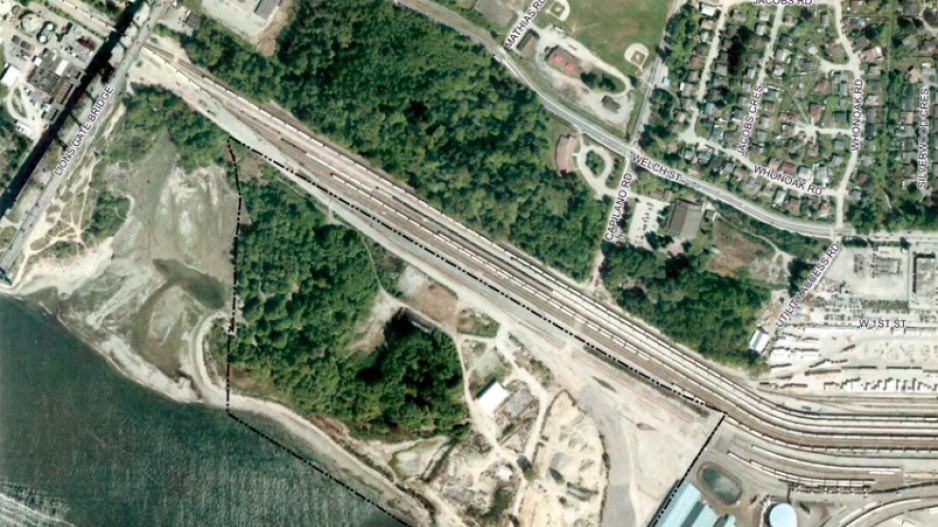A legal fight between the Squamish Nation and the federal government over lease payments is providing a glimpse into an unusual deal, signed 45 years ago, which sees the government pay tens of millions of dollars in rent every year for a piece of vacant land on the West Vancouver waterfront.
The Squamish Nation filed a petition in B.C. Supreme Court against the attorney general of Canada in August, asking a judge to intervene and appoint an arbitrator, after Canada and the First Nation disagreed on how much rent should be paid for the land.
According to court documents, the Squamish Nation wants the annual lease payments from the government set at $29.5 million a year for the next five years – from 2019 to 2024. The federal government has said it should only be required to pay $11 million annually.
The legal fight concerns a 71-year lease signed by the federal government in 1974 for 55 acres of the Squamish Nation’s X̱wemelch’stn (Capilano Reserve) on the West Vancouver waterfront.
At the time, Ottawa intended to build a Pacific Environmental Centre on the land. But soon after, the government scrapped the project, only to discover the terms of the lease did not allow any other use of the site. Since then, Ottawa has been locked into lease payments that are calculated on the highest possible value of the waterfront property.
In the early 1990s, authorities also discovered the site was contaminated by heavy metals, including copper, which is toxic to marine life.
The Squamish, who are planning to eventually build market housing on the land, indicated they wouldn’t be willing to renegotiate the lease deal until the site was cleaned up. Federal cleanup efforts have been underway since then.
Meanwhile, the federal government has continued to pay rent on the land. Current payments are about $13 million annually, according to court documents.
Under the terms of the lease, the rent is determined by a formula based on the market value of the land, which is reviewed every five years. If the two sides don’t agree, the issue goes to an arbitrator.
According to court documents, in January the Squamish Nation put the value of the land at an estimated $661 million with annual rent at $29.4 million.
Ottawa disagreed and in May provided its own appraisal, putting the value of the property at just under $328 million and pegging rent at $11.5 million.
According to the legal documents filed by the Squamish, until the dispute is resolved, Ottawa will continue to pay the annual rent at the previous rate set for 2014 to 2019, “a difference of over $16 million per year.”
Delays in settling the issue are causing the Squamish Nation lost opportunities that “may not be recoverable,” according the petition, such as “acquiring parcels of land and increasing housing or other benefits and services to Squamish Nation members.”
The First Nation is asking the court to order that the arbitrator who decided the lease payments during the last dispute over rent be appointed in the case.
No reply has been filed yet by the federal government in response to the petition and none of the allegations have been proven in court.
In an emailed statement, Environment Canada declined to comment further.




